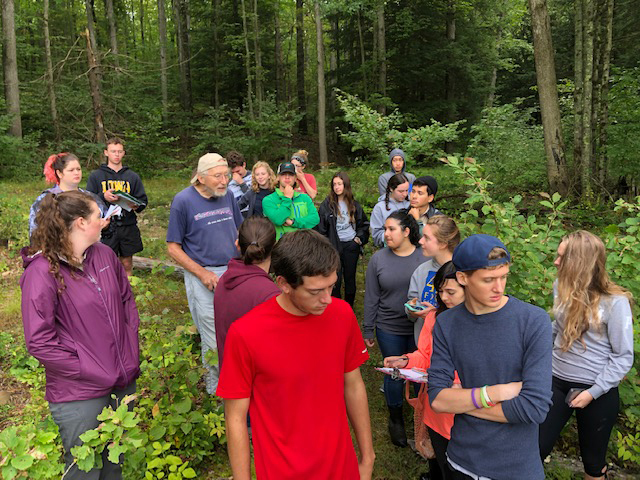Field trips may no longer be a distant, primary school memory for Binghamton University students. Some instructors have begun including excursions in their course curriculum to offer hands-on experience in addition to traditional classroom learning.
Al Vos, an associate professor of English and collegiate professor of Hinman College, said he tries to incorporate trips and external learning experiences in his teaching to give variety to students. Some of Vos’ trips include attending events in Downtown Binghamton and participating in volunteer work at local primary schools.
“Students need to broaden their horizons about the way jobs and careers are discovered,” Vos wrote in an email. “They need to challenge the stereotyped view of Binghamton as a boring place with nothing to do.”
Lauren Cruz, a senior majoring in psychology, wrote in an email that she believes that field trips can be even more rewarding than classwork, despite not yet having the chance to go on any at BU.
“It’s important to get an opportunity to gain hands-on experience in the field you could potentially be in for the rest of your life,” Cruz wrote.
Field trips are not always practical in the University setting, however. According to Sean Cummings, manager of BU Acres, an on-campus garden, and an adjunct lecturer of environmental studies, there are limitations to the field trips, including large classes that are difficult to transport, the prospect of bad weather and the challenge of creating a well thought-out trip.
Cummings, who teaches ENVI 250: Farm-to-Table Food, includes visits to the campus garden and an organic farm in his curriculum to teach students the various processes of food production.
“The trips create a very concrete connection between what we learn in the classroom and how it can be applied outside the classroom,” Cummings wrote in an email. “The trips also add a kind of detail and color to the course material that could never be achieved merely through lecture or films.”
Jessica Hua, an assistant professor of biology, also chooses to include field trips in BIOL 461: Freshwater Biology to complement research aspects of certain courses and to create an accessible space for all students.
“Students learn to identify wetland indicators which gives them the ability to define the boundaries of wetlands,” Hua wrote in an email. “Students not only get to interact with plants and wildlife; they learn cool ecology and come away with a practical skill that can be applied in future jobs.”
Depending on the department, some students may be able to experience more outings than others. Rebecca Crespo, a junior majoring in Italian, says she hasn’t taken any courses that include field trips.
“Not having been on a field trip so far into my college career, I do feel like I have missed out on opportunities to get a [real life] perspective on things we’re learning about in class,” Crespo wrote in an email. “I feel like there have been opportunities for an instructor to include some sort of excursion to show us real life applications, but did not.”
But others are finding that field trips are popping up increasingly often in their classes. Seth Price, a junior double-majoring in environmental studies and geography, said he has taken advantage of opportunities to go on a large number of field trips because of his class choices, many of which are higher-level course electives.
“Speaking in the simplest way possible, field trips provide students with a glimpse into the tangibility, applications and implications of what they learn in the classroom,” Price wrote in an email. “Almost all students can agree that it is sometimes very difficult to identify the purpose of pursuing the academics we choose to pursue, but fields trip can completely reverse this.”



